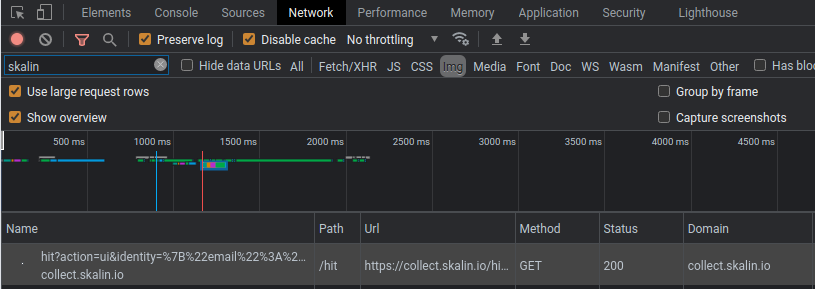Installation
Installation
# Overview
Skalin offers an SDK to collect the identification and functionalities used by the users of your platform, the use of this information allows it to be fed into a usage score in Skalin in order to obtain a more precise health score. .
The implementation of this service requires:
- The insertion on each page of the site of a script (Skalin SDK) which facilitates the collection and transfer of data to our platform.
- The provision in a structured format of data linked to the user connected to your platform as well as information on his browsing context - usually via a datalayer.
The collection methods are described in the following sections of this document.
# Data protection
# First-party collect and storage
Skalin uses first-party cookies to track your users' interactions. These cookies are used to store information such as the date of the current visit or the recurrence of visits. On the other hand, the cookies placed do not store any personal data.
Browsers do not allow the use of a first-party cookie between multiple domains. This means that the cookies placed by Skalin cannot be read and used by third-party sites.
Our SDK uses the **localStorag ** to save user credentials. By default, all data stored via localStorage has an expiration period of 13 rolling months (each time the user logs in, the expiration is reset to 13 months).
# Regulations and responsibilities
Recent developments in the legislation of certain countries require not to collect navigation information as soon as it can be linked to an individual, and this as long as he has not given consent to this collection.
The information collected by Skalin falls under the category of information related to an individual, and it is important to respect the regulatory framework in force and the measures it imposes. In particular, it is your responsibility not to trigger the Skalin tag until the individual has given their consent if your regulatory framework requires you to do so.
# SDK installation
The SDK works asynchronously so that the display of the page by browsers is not impacted by the download of the script.
The following code must be included on each page of the site on which the data is collected, for example via a Tag Manager :
<script type="text/javascript">
(function(w,d,l,t){
w[t]=w[t]||function(){var p=[];Array.prototype.push.apply(p,arguments);return (w[t].p=w[t].p||[]).push(p);};
var g=d.createElement('script');g.type='text/javascript';g.defer=true;g.async=true;g.src=l;
var s=d.getElementsByTagName('script')[0];s.parentNode.insertBefore(g,s);
})(window, document, "//assets.skalin.io/scripts/skalin.min.js" , "ska");
ska(function(skalin){
skalin.clientId({{ClientId}});
});
</script>;
2
3
4
5
6
7
8
9
10
11
| ClientId | your client ID which was provided to you by Skalin or is available in the
|
# Recipe
To be able to verify the correct sending of information to the Skalin platform, it is necessary to use the native debug functions of most browsers. Here we take the example of DevTools available in Google Chrome.
In the "Network" tab, the following filter must be used: « skalin ».
We thus find all the information transferred to the Skalin servers.
Example

By opening the first request (action = ui for user identity), we find all the information sent to the Skalin platform in the « Header » > « Query String Parameters » section:
For example, “identity” contains the content of the user's identification information.
